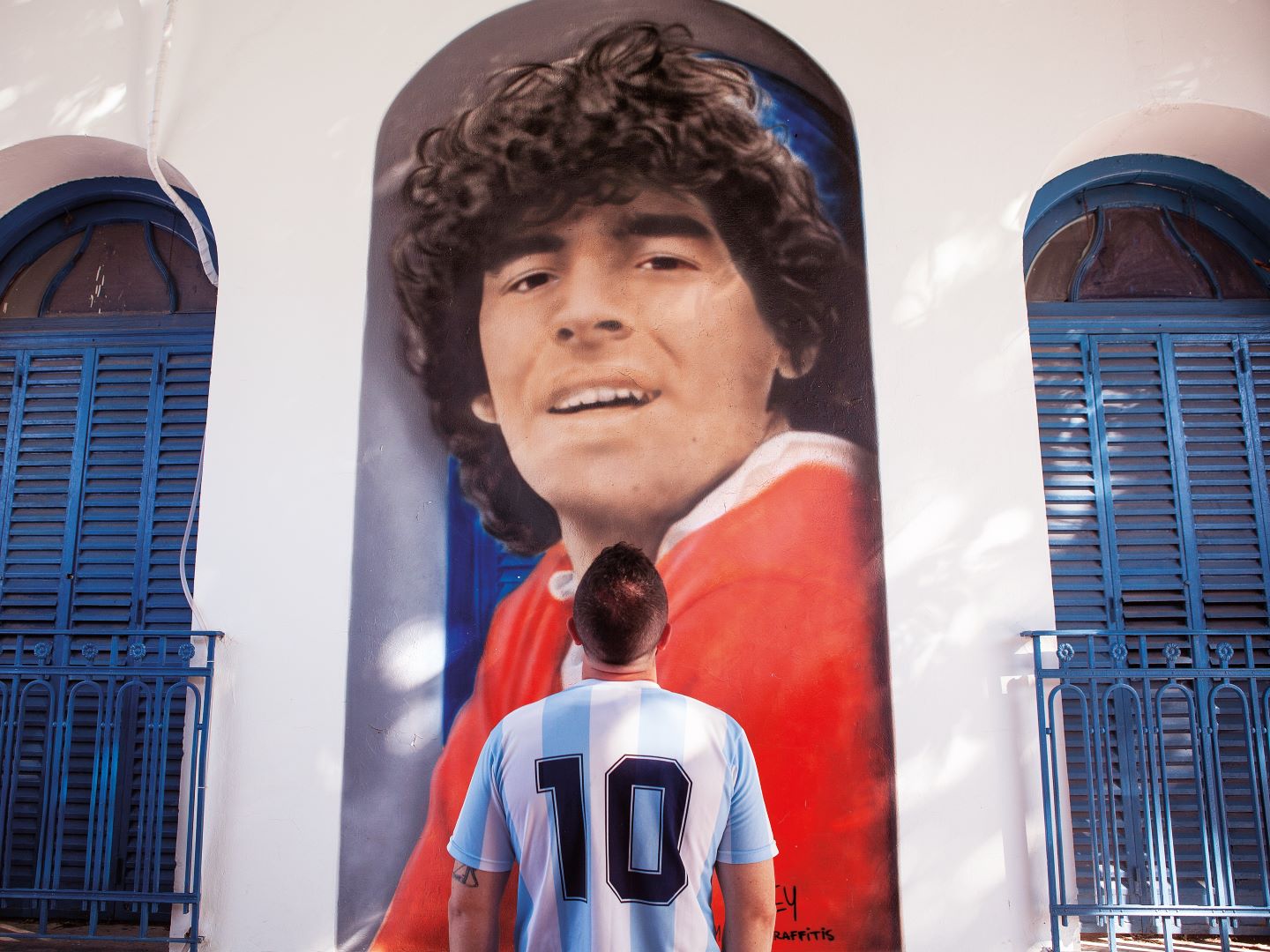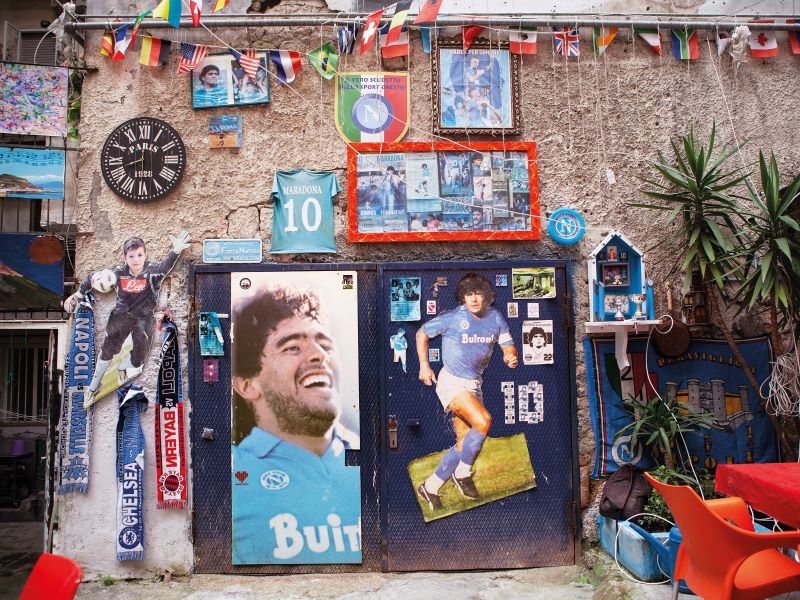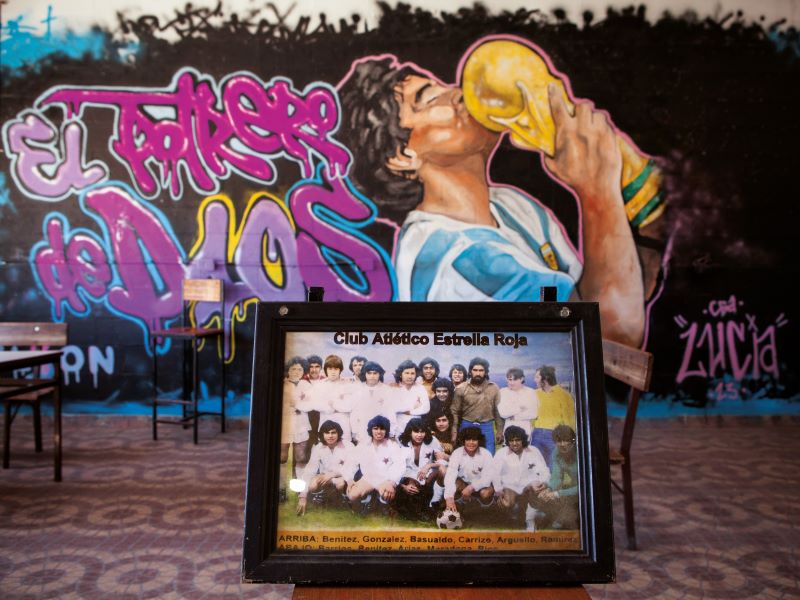
Maradona enchanted fans all over the world with his graceful dribbling, powerful accelerations and invincible shots (All photos: Paolo Vezzoli)
Oct 30 marks what would have been the 64th birthday of one of the giants of football: Diego Armando Maradona.
A controversial figure on and off the field, Maradona, who died in 2020, is ranked among the greatest players of all time. In a career that spanned over two decades, earning him a World Cup and countless other titles, he delighted fans all over the globe and left an everlasting legacy that goes beyond football.
Today, I want to remember him as the man who, in the span of 20 minutes, changed my perception of the game.
I had the fortune to meet El Pibe de Oro (The Golden Boy), as Maradona was also known, during the World Cup in Italy back in 1990. I was to interview him for a Japanese TV channel during a training session of the Argentine team in Rome. Just before the meeting, my heart started pounding as if it were about to explode with excitement. My mind went blank. I felt like a kid in a candy store.
There was literally magic in the air. We were a bit early, so we waited on the sidelines, watching him and his teammates train. They were all great players, but Maradona’s effortless grace stood out. I was mesmerised by the way he toyed with the ball as if it were tied to his foot with an elastic band.
Unfortunately, the interview did not go as expected. Maradona was aloof, at times seemingly annoyed. You could feel his mind was not there, that he wanted to get it over with as fast as possible and go back to the team. When we asked if something was wrong, he mumbled something about a busy schedule and left. And he refused to sign an Argentina shirt I had brought with me. Nevertheless, I fell in love with Maradona the player. The interview became an afterthought. After all, I was in the presence of greatness.
img_5289_copia.jpg

I was but one of the millions of football fans Maradona enchanted with his graceful dribbling, powerful accelerations and invincible shots that could pierce defences and land in the back of the goal. However, he will likely best be remembered for the two goals that propelled Argentina past England at the Azteca Stadium in Mexico City during the quarterfinal of the 1986 World Cup.
The first was a “header” that met a clearance by the English defence. It became famous as it was a handball rather than a header. Everyone saw it was a handball, except the referee and the line assistant. But at the time there was no VAR (video assistant referee) technology, so the goal stood. Maradona later said the goal was scored “a bit with the head and a bit with the hand of God”.
The second was one of the greatest goals of all time. He took possession of the ball in the Argentine half and cut through the English defence like butter to drive a powerful shot into the net, leaving the English defenders looking at each other in disbelief. Argentina went on to win the tournament.
That was Maradona. You either loved or hated him, and no places loved him more than Buenos Aires and Naples.
In Buenos Aires, his childhood home in Villa Fiorito, just outside the Argentine capital, has been renamed La Casa de D10S (which means the House of God and also a subtle play on his classic number 10 position) and is a place of (almost religious) pilgrimage. There are plans to turn it into a museum to attract tourists, especially from Naples, but the project is still in its infancy.
The other “holy” site is the Potrero de D10S, literally the “Soccer pitch of God”, where Pelusa (Maradona’s nickname as a kid because of his hair) started his career among the ranks of the Estrella Roja Villa Fiorito. It is at the centre of charitable activities to help the underprivileged children in the area.
img_0593_copia.jpg

But it is in Naples, where he played for the local team Napoli for seven seasons from 1984 to 1991, that he achieved divine status.
Maradona led Napoli to its first Scudetto (league title) in the 1986-1987 season and then again three years later. Napoli became the first team from southern Italy to win the Scudetto. As a Neapolitan friend of mine told me a few days ago, Maradona gave the city of Napoli its dignity back.
If you walk around the streets of Naples, you will find images of Maradona in all shapes and sizes, even some depicting him as a saint. Here and there you can see altars decorated with all sorts of Maradona-related images and gadgets, and it is common to see people praying to him.
What are they asking him? No one can tell, but likely to come back and mesmerise them once again with his fancy footwork.
This article first appeared on Oct 28, 2024 in The Edge Malaysia.


